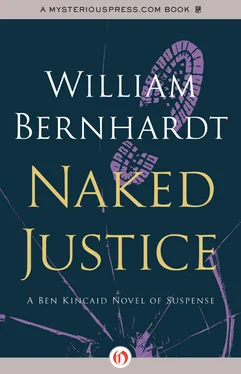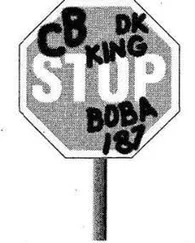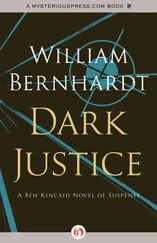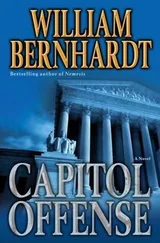“It was just a stupid mistake,” Ben blurted out. It just wasn’t fair. He liked working here; he didn’t want to lose the job over this. “I didn’t know about the security system. Nobody told me. It won’t happen again. It was no big deal.”
“I think it was.”
“I don’t know what you heard, but I don’t do stupid things all the time. Certainly not all the time—”
“What I conclude from this incident,” Bullock said, interrupting effortlessly, “is that you were willing to put in long hours. Even on your first day.”
“Well … yeah …” Ben’s hands were making ridiculous flopping gestures. He sat on them.
“Is that still true?”
Ben looked up. “Well, yes.”
“Haven’t I seen you in the corner carrel in the library during the lunch hour?”
“Uh, yeah …”
“Drinking mineral water out of a bottle?”
“Right.” Ben wasn’t sure which part was the offense—being in the library during lunch or drinking mineral water. “Well, it’s not like I have to drink mineral water. It’s just that the tap water here is so bad.”
“You grew up in Nichols Hills, didn’t you?”
Ben frowned. “How did you know?”
“Not hard. It’s written all over you. Plus, everyone knows Nichols Hills has the worst water supply. The best houses and the worst water. I’d drink mineral water, too, if I lived in Nichols Hills. Which I never will.” His eyes lowered. “Will you?”
Ben stuttered. “Th-that’s not my principal goal in life, no.”
Bullock’s head tilted to one side. “You’re not related to that Nichols Hills cardiologist, are you? Edward Kincaid. The Baptist Hospital hotshot. The one I always see in the society pages at some fund-raiser or the other.”
Ben was tempted to lie, but he knew it would be simple for Bullock to learn the truth. “That’s my father.”
“You get along well with dear old dad?”
Ben could feel himself blotching up, as he always did when an uncomfortable subject was broached. “We’ve had our differences.”
“Like?”
Ben shrugged. “He wasn’t too keen on my becoming a lawyer.”
Bullock made a small snorting noise. “Doctors never are. Lawyers frighten them. They consider them a threat to their God-given right to make tubs of money. And they like to tell themselves that all those lawsuits against them are brought by lawyers. It’s easier than acknowledging the reality that those lawsuits are brought by their patients. Maybe if they spent less time hating lawyers and more time caring about their patients, they wouldn’t have that problem.”
Ben didn’t say anything. He really wished Bullock would change the subject.
“I’m looking for an intern,” Bullock said suddenly.
“Oh, well.” Ben’s voice cracked. “That’s no problem. We have ten interns in the office this summer.”
“I need only one.” Bullock pushed himself to his feet. He was taller than Ben would have guessed—lankier, but still imposing. “I need a personal assistant. Someone to work exclusively with me, to help me cope with this mind-numbing caseload the DA has dropped in my lap.”
“That shouldn’t be a problem,” Ben said. “I think any of the interns would be honored to work with you.”
Bullock leaned across his desk. “I was rather thinking you might like the job.”
Ben was flabbergasted, and it showed. “Me?” His hands escaped from under his legs and pressed themselves against his chest. “Why me?”
“Because of this.” Bullock picked up a thick document and tossed it across his desk. It was the trial brief Ben had written for a case styled State of Oklahoma v. Raymond Rogers Browning. Browning was a low-level drug dealer who’d been caught with a stash of junk in his parents’ basement. Ben had written the brief, and it had been filed virtually unchanged. “How long did you spend on that brief, Kincaid?”
Ben wondered whether he should be honest, but he knew he was a pathetic liar. “Two weeks. A little more.” Probably three times as long as most of his fellow interns spent on a single brief. “Mostly nights.”
“So you could keep up with your other work during the day.”
Ben nodded.
“I suspected as much.”
Ben leaned forward. “I’m sorry about this, Mr. Bullock. I’ll be more efficient in the future. I promise. It’s just that, this was a very special case.”
“I quite agree,” Bullock said quietly.
“You …” Ben stopped, surprised. “You do?”
“Oh, yes. I’ve been trying to convince everyone in this office of the importance of this case. But no one else can see it. They say, it’s a first offense. Blow it off. Plead it down. Assign the brief to an intern. That’s what they say.”
“I know it’s Browning’s first offense,” Ben said. “At least, the first time he’s been caught. But the man was peddling drugs to schoolchildren. Grade school children. And he stashed the stuff in his parents’ house, obviously implicating them. And he lied to his parents about it.” Ben’s face lowered. “That’s just unforgivable.”
“I couldn’t agree more.”
“You do?”
“I do. A person who would do what this man has done could do anything. The man is a sociopath. He doesn’t care about anyone other than himself; he thinks he is the measure of the whole world. If we had pleaded him down, or let him off with time served, he’d be back in custody within months. The only difference would be that he’d have more time to ruin more children’s lives. I wasn’t willing to let that happen.” He stepped around his desk, closer to Ben. “And judging from this brief, you weren’t either.”
Ben didn’t say anything. He didn’t know what to say.
“Mr. Kincaid, let me lay it on the line for you. I still believe in good and bad, in black and white, in right and wrong. I believe the guilty should be punished. I believe the law enforcement community has an obligation to make the world a better place, a safer place. And I believe that with dedication and hard work, everyone can make a difference. Even lawyers.”
“So do I,” Ben said, so quietly it was barely audible.
“So what do you say, Kincaid?” He held out his hand. “Wanna work with me?”
“Yes,” Ben answered, clasping his hand. “Very much.”
Bullock shook vigorously and smiled. “Mr. Kincaid, I think this is the beginning of a beautiful friendship.”
And it was. For a while.
Chapter 15
ON HIS WAY TO the office the next morning, Ben checked the newspapers in the stand at the corner. The Wallace Barrett case took the headline and filled the top half of the page in the Tulsa and Oklahoma City papers. It was respectably featured on page one in The New York Times and The Wall Street Journal and got a nice blue-lined box in USA Today . No doubt about it—the eyes of the world were upon them.
Ben bought one of the local papers and carried it back to his office. The banner headline read: MAYOR SICK AT HEART ABOUT MURDERS. Beneath that, a smaller headline read: DA REP SAYS AIRTIGHT CASE READY FOR TRIAL. In the center of the page, a photo showed Barrett in his baggy orange coveralls, hands cuffed behind his back, looking away from the camera, out the corner of narrowed eyes. No doubt about it; he looked like a criminal. Correction: they made him look like a criminal. It was clear to Ben that, despite the fact that there must’ve been hundreds of photos of Barrett in their morgue, the paper intentionally chose the one that made him look the most unsavory. The most guilty.
At the office, Jones was dealing with the news reporters that had been calling the office night and day. He was juggling two different phones, one in each ear. He was talking into one with another of his seemingly endless array of accents.
Читать дальше







